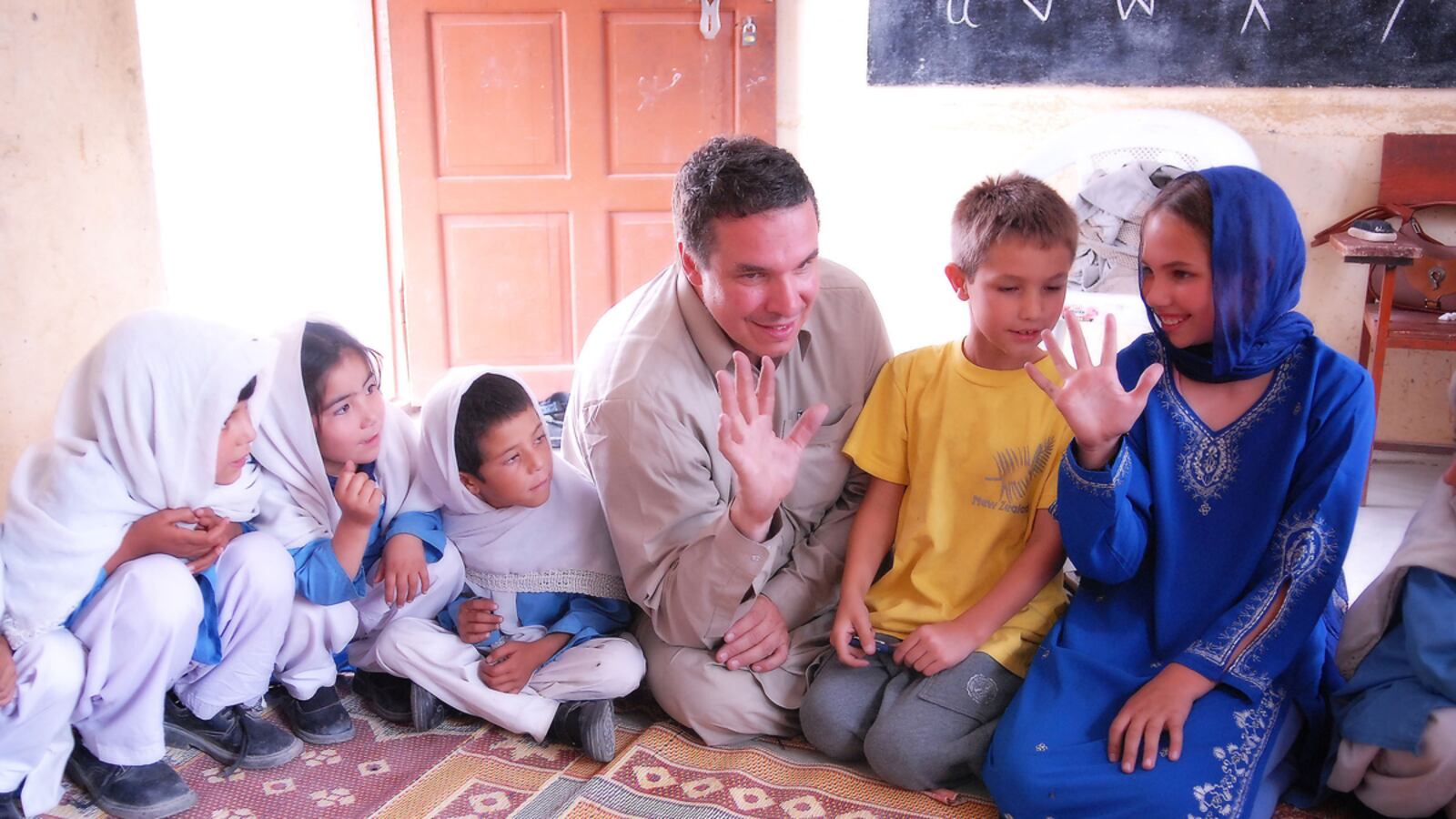The federal government is riding to the rescue of the scandal-plagued charity that is seen by its critics as little more than a publicity machine for the disgraced “Three Cups of Tea” writer Greg Mortenson.
In a move that could mean millions of dollars in new donations for Mortenson’s group, the U.S. Combined Federal Campaign, the huge charity fund for government workers, has decided in recent weeks to allow the Montana-based charity, the Central Asia Institute, to begin receiving money from the fund.
In a statement to The Daily Beast on Tuesday, the Office of Personnel Management, the federal agency that oversees the fund, said it added the institute to the 2012 list of approved nonprofits—even though “we are concerned about the charity’s lack of internal controls, as identified by the Montana Attorney General’s Office.”
Last week, the Montana attorney general announced that Mortenson had agreed to pay at least $1 million in compensation to the institute, which was established to promote educational programs in Central Asia, for having used the group to publicize and buy copies of his bestselling books.

An investigation by the Montana AG’s office found that the institute had spent almost $3 million buying copies of the books for libraries, schools, and other organizations, with Mortenson keeping the royalties. The group also spent about $5 million on advertising for the books. Additionally, the inquiry also found that Mortenson had billed the group for clothing, vacations, and iTunes purchases.
Separately, Mortenson has been accused of rampant fabrications in his best-known book, Three Cups of Tea, which purports to describe the veteran Montana mountaineer’s contacts with impoverished, war-torn communities in Pakistan and elsewhere in Central Asia. Mortenson, the subject of a devastating investigative report by 60 Minutes last year, has stood by the overall accuracy of his books and denied any wrongdoing.
The charity’s executive director, Anne Beyersdorfer, said an email to The Daily Beast on Tuesday that the Central Asia Institute no longer provides expense money “to Greg Mortenson or on behalf of Greg Mortenson” and that there was nothing unusual about the organization’s request to be included in the list of approved federal charities. “We were accepted based on our full and complete application,” she said.
She said it was the first time the charity had applied to participate in the federal campaign. Asked if Mr. Mortenson, who is still affiliated with the charity, could be contacted separately for comment, she replied with a one-word answer: “No.”
The Office of Personnel Management statement suggested the government had no choice but to add the Central Asia Institute to the list of approved nonprofits since the group had met the formal legal guidelines for inclusion. “OPM is prohibited from making the standards any stricter than what was set by the law,” the statement said.
The OPM statement said the office would urge government workers who participate in the Combined Federal Campaign to do their own research with charity-watchdog groups before directing any money to the Central Asia Institute or to other nonprofits in the fund. More than half of all federal workers participate in the annual fundraising campaign.
The Combined Federal Campaign functions as the government equivalent to the United Way, allowing government workers to make payroll deductions for charity; workers can choose which charities receive their money from a list of approved nonprofit organizations—a list that now includes the Central Asia Institute.
The Combined Federal Campaign, which describes itself as the world’s largest workplace-giving campaign, raised $281.5 million in 2010.
In its statement, the Office of Personnel Management said it expected the Central Asia Institute to abide by its commitment in its settlement with the State of Montana last week “to implement more strict management controls” and to require Mortenson to repay the charity for royalties of his book, as well as to reorganize its board of directors.
Under the settlement, Morgenson was allowed to retain his affiliation with the charity and to remain its most visible, paid public spokesman, although not as a voting member of its board of directors.
Beyersdorfer, the group’s executive director, said the institute was committed to transparency with its donors.
“Our financial statements and IRS information returns, as well as the plethora of information on our website, clearly indicate the tremendous program service accomplishments” of the charity, she said. “We look forward to continuing those programs with the help and support of our steadfast supporters.”
She was quoted by the Associated Press last week, in the wake of the settlement in Montana, as saying that Mortenson would remain a paid employee of the charity. “He’s the heart and soul of the organization,” she said. “He’s the co-founder, and I think we all think of him as our chief inspiration officer.”






